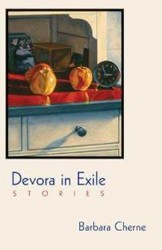By
– January 5, 2012
Weil’s poetic, surprising book (written in 1992, translated in 2008) conceives of those who escaped the Holocaust with their lives as covert survivors, subject always to the devastating ripples of pain and memory that irradiate the rest of their lives. Whether remaining in Germany or elsewhere in Europe, or building new lives in America, Weil’s characters cannot fit into the real world because of the experiences in the unreal world from which they came. Weil, who lived in Munich and died in 1996 at 93, seems to conceive of herself as a pseudo-survivor, never having seen the inside of a concentration camp, though her husband died there in 1941. Guilt permeates these stories, guilt and a sense of perpetual shock at the ability of a life to go on, perhaps nowhere more poignantly than in the final story in the collection, “And I? A Witness to Pain.” Here, Weil writes nakedly about her own survival, wondering, “Maybe I’ve remained alive simply because I didn’t witness enough.”
Carolyn Slutsky has written for The New York Times, Publishers Weekly and other publications. She is a staff writer at The Jewish Week.



